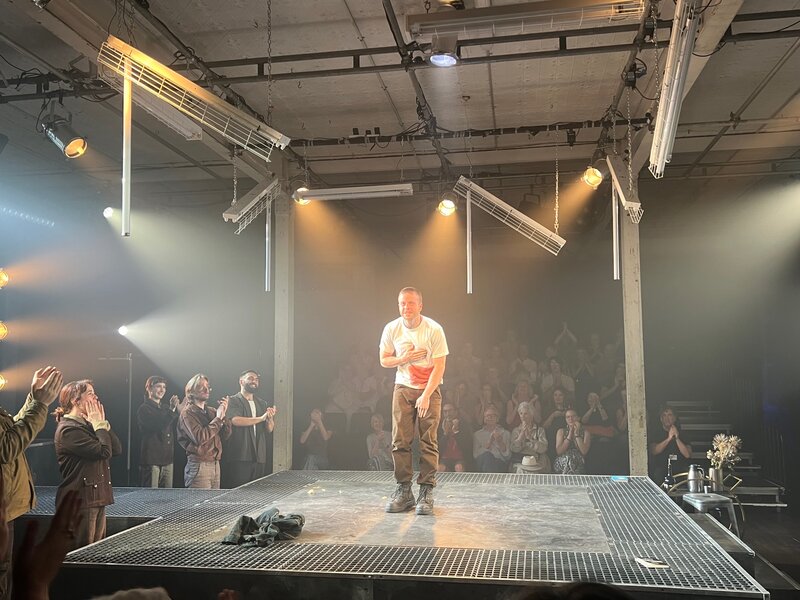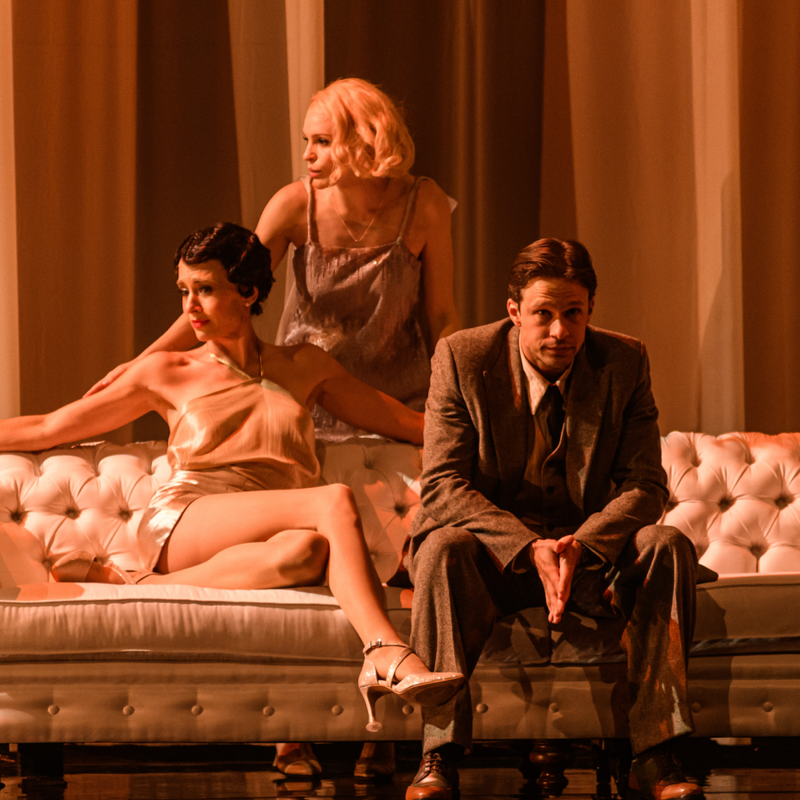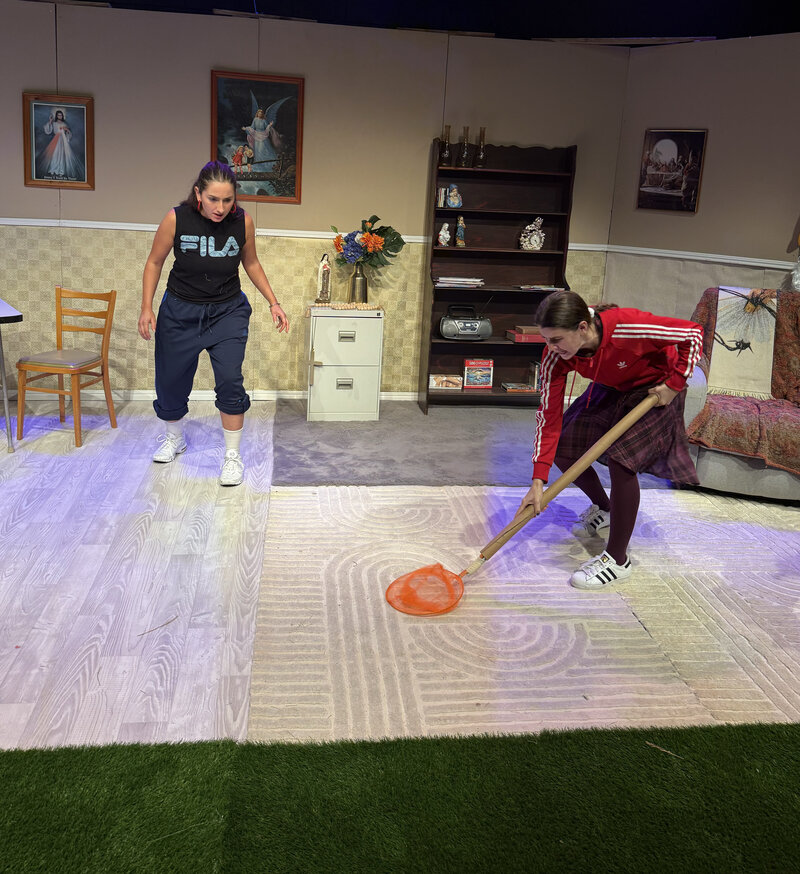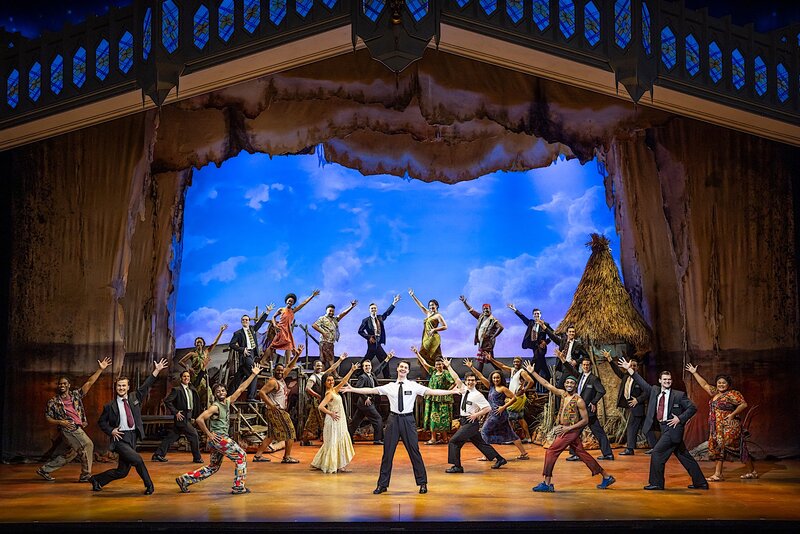It’s been a long time since I have read George Johnston’s 1964 Miles Franklin Award-winning My Brother Jack. However, through the lens of undergraduate literary-study nostalgia, I still recognise the seminal Australian novel’s place as part of our country’s canon, despite its challenge to our comfortable assumptions of national character. Still, like many I imagine, I don’t know much about Johnston himself, let alone his private life. Award-winning playwright Sue Smith’s work Hydra goes some way to filling this space. Ultimately though the new work is about the author’s fellow novelist and Sydney Morning Herald columnist wife Charmian Clift, a modern woman with intellectual ambitions, serving as midwife to her husband’s great Australian novel determinations and while acting as carer to his declining health.
The world premiere Queensland Theatre co-production with the State Theatre Company of South Australia is set on the Aegean island of Hydra, two hours south of Athens by boat. Here Johnson created My Brother Jack, but it’s the fictionalised story behind its creation that had me captivated.

It’s 1956. In search of an Aegean sea change, Australia’s famously scandalous literary couple – acclaimed war correspondent George Johnston (Bryan Probets) and talented journalist Charmian Clift (Anna McGahan) – move to the Greek island to focus on their writing. It’s the two of them against the world in their Icarus-like choice to fly towards the sun.
Over their ten years in Greece, they have three children; the story is told from the perspective of their poet and novelist son Martin Johnston, played by Nathan O’Keefe. They write books, both collaboratively and individually. Indeed, the decade Johnston and Clift spent in Greece was one of intense creative productivity of nine novels for Johnston and two novels and a memoir for Clift.
The couple’s self-exile begins as a bold and romantic rejection of expectation and an escape from the tyranny of city life. But the duo become figureheads of bohemian Hydra; a paradise full of writers, dreamers and free spirits, mocking the ockism and cultural cringe back home. Over the years they joined by a long list of like-minded spirits including Sidney Nolan and his wife Cynthia Reed, represented in the play as couple Vic (Hugh Parker) and Ursula (Tiffany Lyndall-Knight).
It is a boisterous time of honey cakes, ouzo and duelling typewriters. But over time, things transition into a Greek tragedy of the couple’s own making as the good times turn to alcoholism and hostility. And as they struggle with the unfairness of working hard but being poor, their relationship strains towards crises of jealously, illness and infidelity (care of the flirtatious Jean-Claude, played by Ray Chong Nee, whose heavily-accented words may not always be as clear as his intentions).
Hydra is a moving relationship drama, realised by measured performances. McGahan is captivating in her control as the emotionally-expressive Clift. She conveys a layered take on what easily could have been a one-note feminist frenzy. Indeed, there’s a beautiful physicality to her reserved energy, especially in the scenes that weave some of Clift’s original writing into monologues. Proberts is always a nuanced actor and he’s tremendous as the tormented Johnston. He gives a mercurial performance of initial charm and later heartbreak. Also particularly on-point is Hugh Parker, whose supporting role as Vic is a standout of ‘50s stoicism.
Attention to detail is evident in all aspects of the production. This includes the juxtaposition of the more modern costuming of the narrator son to those of characters in the recalled stories. Notably, costumes are authentic but purposeful in showing not just its era-evocative sense of time but the narrative’s passing of years.

Vilma Mattila’s design shows eloquent restraint, yet her creation of place is vivid, not just in the Greek Island setting but in its easy transition to an Australian living room after the ex-pats return home. Nigel Levings’ lighting sun-kisses the iconic white-washed setting. It evokes the lyricism of Clift’s monologue of Peel Me a Lotus, making it easy to appreciate its inspirational words of nature-worship. Quentin Grant’s soundscape of idyllic ocean imaginings lightens the increasingly tense mood.
Under Sam Strong’s restrained direction, Hydra is an intense, slow-burning relationship drama. More than just this, however, it is a sweeping tale full of big ideas. It’s perfectly suited to the still-new Bille Brown Theatre and Queensland Theatre’s 2019’s Season of Dreamers. Though its setting may be an age away in time and place, its premise remains relatable. The dream of better is as old as humanity. Appropriately for a show set in Greece, the work is full of mythical allusions and motifs, making it accessible to all audience members. It’s understandable that its season is selling so well, especially for a new work. While you don’t necessarily need to know the backstory or writing of its subjects, like all good works, Hydra will leave you inspired to if not discover or revisit their literature, then at least read more about these greats of the Australian cultural landscape.
Hydra is playing at the Bille Brown Studio, West End, Brisbane until 6 April 2019.
Meredith Walker
For more of Meredith Walker’s theatre reviews, check out Blue Curtains Brisbane.





